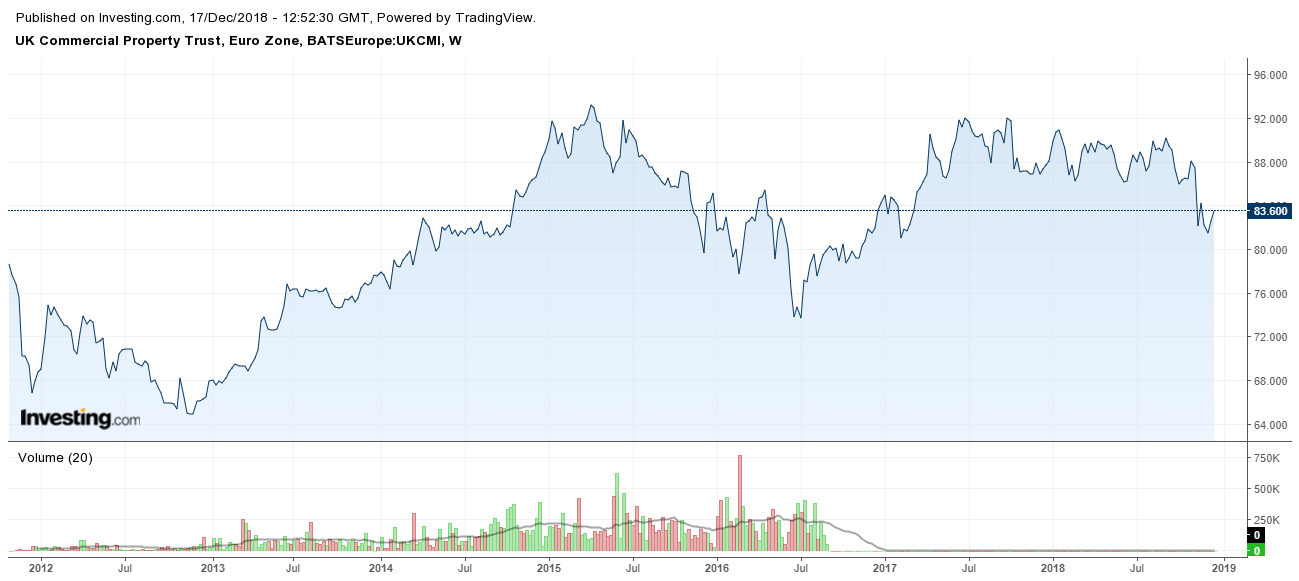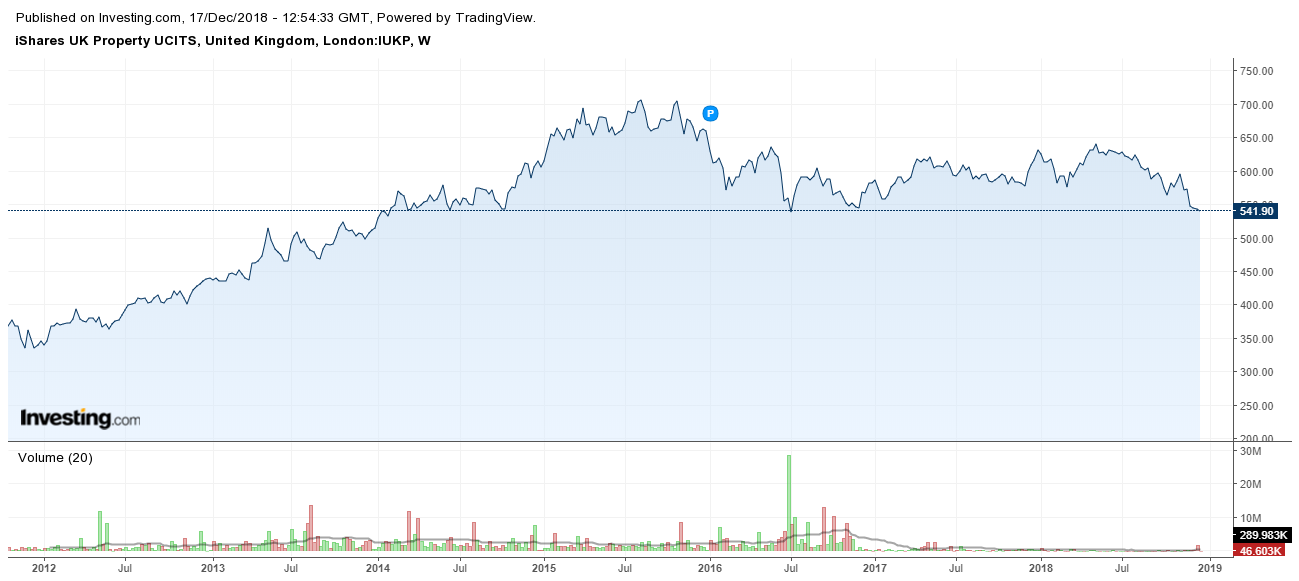Street Calls of the Week
The UK property market is ranked among the top places to invest in the global real estate market. London plays a crucial role in driving the UK’s ranking. And over the last couple of years, property prices in the English capital, though notably bumpy, have maintained an upward trend on a general view.
The UK Commercial Property Trust (UKCMI) peaked in September last year following the Brexit referendum vote in 2016. This appears to have perplexed a few people given that the obvious expectation was that real estate prices in London would begin to fall owing to Britain’s expected departure of the European Union. In fact, the UKCMI had dropped to a new multi-year low of about 71 basis points in the run-up to the referendum vote in 2016.

The simple reason why UK property prices have remained steady for the better part of the last two years according to a PwC report is embedded in the nature of real estate contracts—they are long-term, which means that in the short-term, Brexit should have no major impact on house prices in London.
But how long can UK property prices hold steady?
As mentioned, it has been over two years now since Britain voted to leave the EU in June 2016. The deadline for separation (March 2019) approaches and this could stir things up a bit in the real estate market given the current situation.
Depending on when some of the lease contracts were last renewed between the tenants and the property owners, some of them could be approaching expiry. Furthermore, the Brexit situation has since become more volatile with investors expecting the UK economy to experience a significance squeeze regardless of the outcome of the negotiations with the EU.
Some have predicted a potential no-deal Brexit, which has since been popularized as a ‘hard Brexit’, while Prime Minister, Theresa May, is still hopeful of a workable solution to the current state of impasse.
However, even as PM Theresa May continues to push her proposed deal to go through in the House of Commons, it has consistently been rejected by most of the MPs. This culminated in the postponement of a scheduled vote on the deal in the House of Commons last week.
The intensity of this debate has rocked several parts of the economy. The UK property market is likely to suffer significantly from a ‘hard Brexit’ outcome. However, reports indicate that the likely impact of a ‘hard Brexit’ on the UK economy could hit just about every sector. It has already caused uncertainty in the consumer market, and therefore, some are already beginning to take precautions. This could affect the UK manufacturing sector and the financial sector as consumers cut spending on high cost products. For instance, the month of October 2018 was characterized by a sharp decline in the PMI manufacturing index, which fell to the lowest level (51 points) in two years. And while there was a substantial rebound (53 points) in November, it remains to be seen how long this rebound will hold.
These effects will likely spread to the rest of the economy and real estate, which is already expected to suffer, could be affected further in the chain reaction. The relationship between the UK property market and Brexit inches on what happens after separation. If the UK maintains good working terms with the EU post-separation, then there is a chance that the impact might not be as intense.
So, how intensely could the UK property market suffer?
Should the outcome be a ‘hard Brexit’ as is highly expected, then there could be a huge impact on the UK house prices. In October, the Bank of England Governor Mark Carney indicated that house prices could suffer a 35% decline should the UK get a no-deal Brexit deal. This is primarily because of the expected exodus of multinational companies from the English Capital.
Furthermore, tightening immigration rules would also imply that population growth in the capital might slow down significantly with most of the people looking to come to the UK falling below the bar set by the new rules.
So far, some deep cracks are already beginning to appear in the UK property market. The iShares UK Property UCITS (LON:IUKP) has plunged nearly 13% over the last five months. This shows how investors are increasingly becoming cautious of the Brexit stalemate and more declines could be expected once a ‘hard Brexit’ is confirmed in a few months.

As demonstrated on the chart above, the iShares UK Property UCITS ETF has dropped to the lowest level since 2016 and it remains to be seen, whether this will be a crucial bottom as uncertainty continues. The postponement of the UK House of Commons vote on PM Theresa May’s proposed deal last week could be just delaying the inevitable.
On the flipside, a relocation of company headquarters from London to the Eurozone will benefit the new host cities with the housing prices in those cities expected to go up. Currently, Frankfurt in Germany has emerged as one of the preferred destinations due to its advanced infrastructure. Perhaps, this could provide a hint of where investors should be looking to put their money as far as real estate assets are concerned. This will further drain investments from the UK property market.
In the same way, since most expatriates come to the London capital to work, they will instead begin to target work in the new cities. Again, this redirects potential inflow of population that could have driven demand for tenancy up, thereby affecting housing prices.
The repercussions of a ‘hard Brexit’ could be far worse than imagined. There is no dressing up the fact the current climate indicates that there is a high chance the outcome will result in a no-deal decision. This is unless PM Theresa May pulls off a remarkable achievement in the House of Commons by convincing the MPs to accept her proposed Brexit deal, which had already been greenlighted by the EU representatives.
Conclusion
In summary, the real estate market will be among the most affected sectors of the UK economy, and it being a major driver of economic growth, fears continue to grow of a potential slowdown in the UK economy. This could halt the progress made in the last few quarters which has seen the Bank of England Hike rates on two occasions to bring the base interest rate to 0.75%. There are talks of further increases with one expected before the end of the year, but that could be hampered by the current stalemate in Brexit negotiations.
Higher interest rates will affect mortgage rates in the long-term and that could also have a dampening effect on the demand for UK property market.
